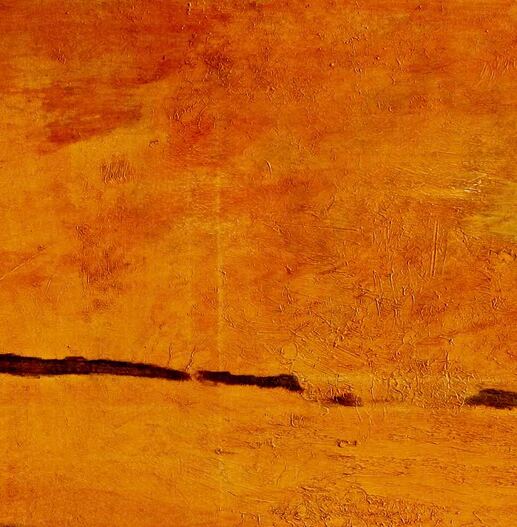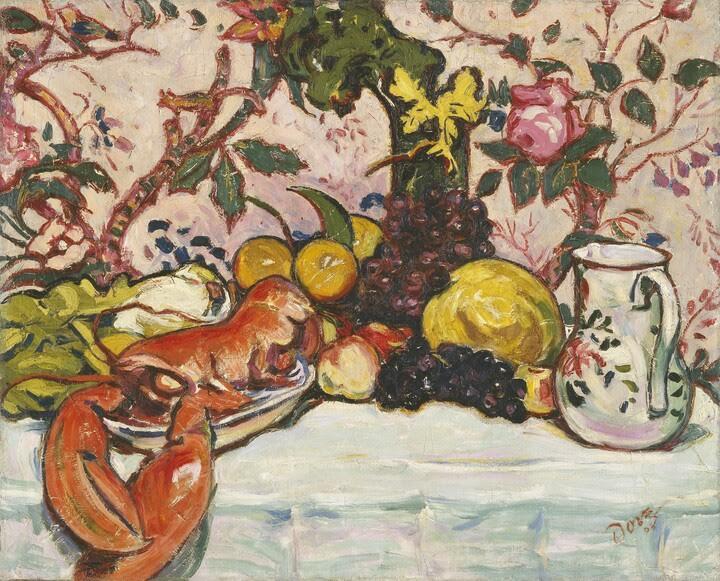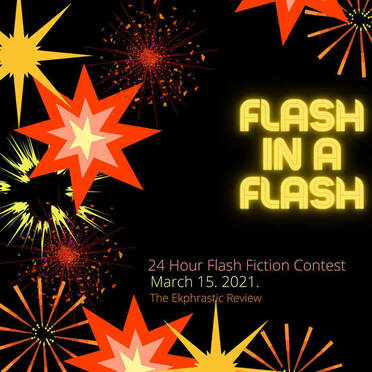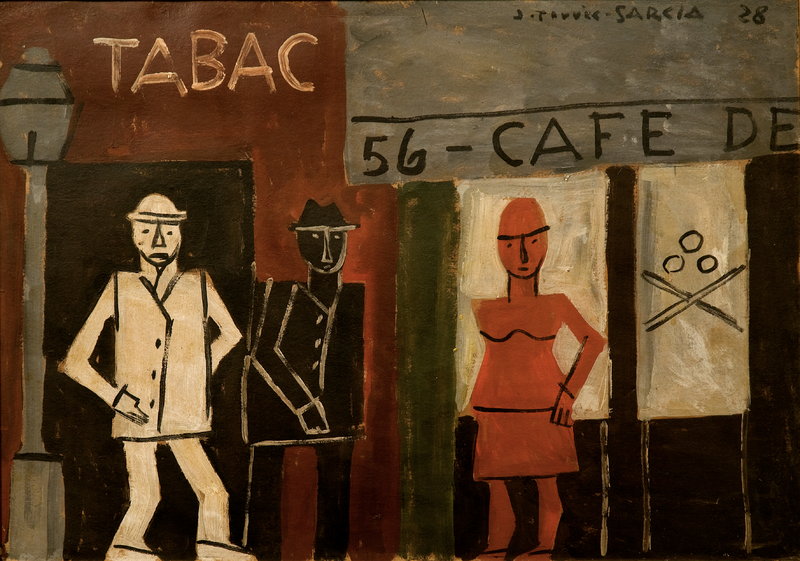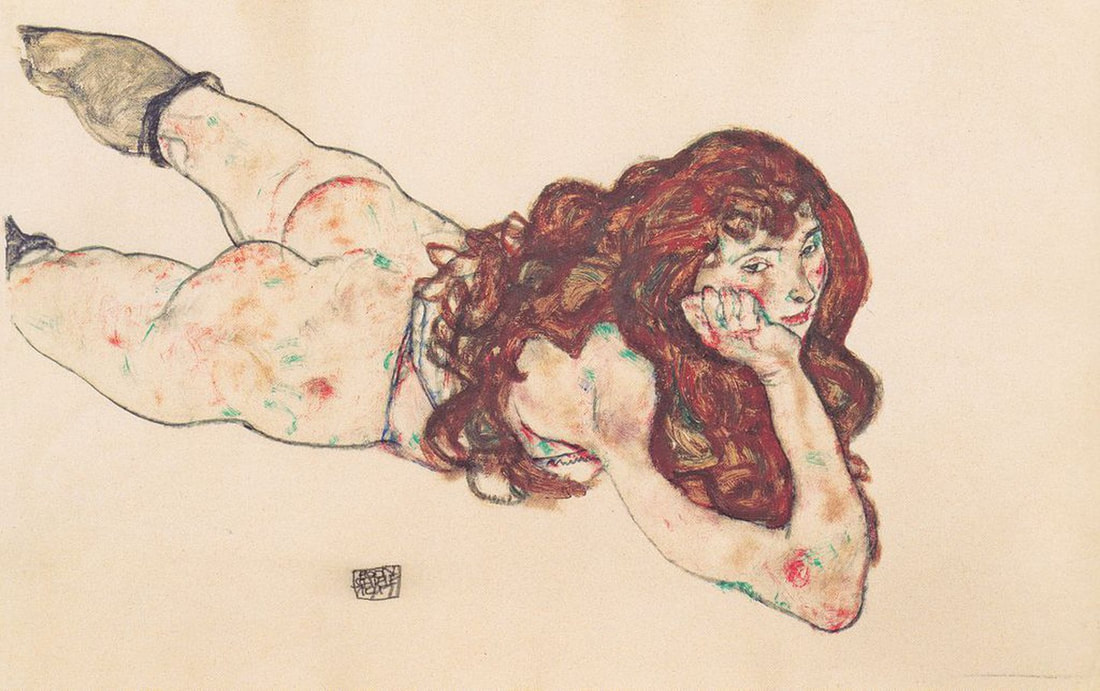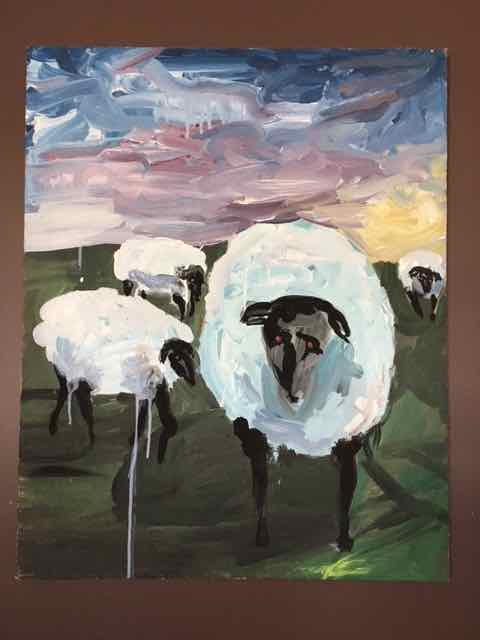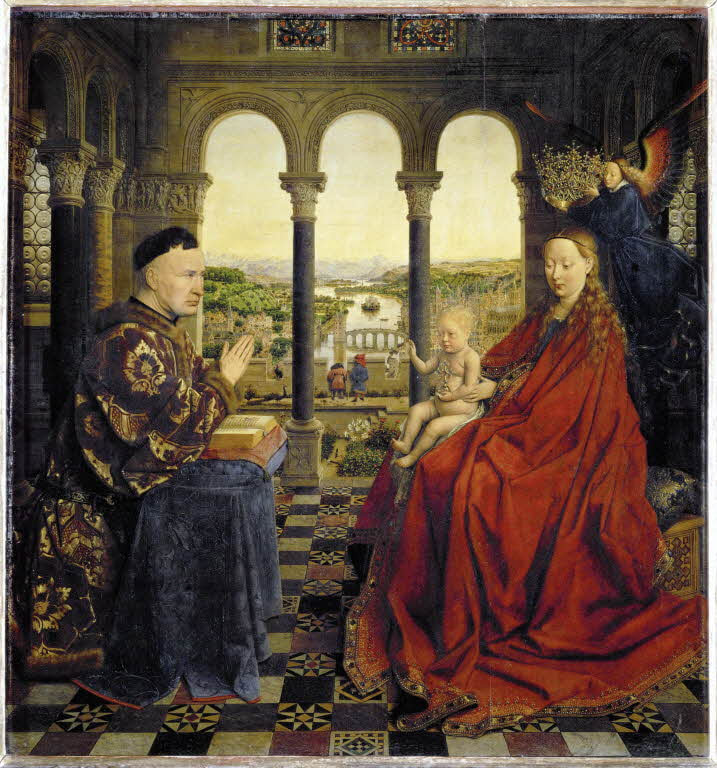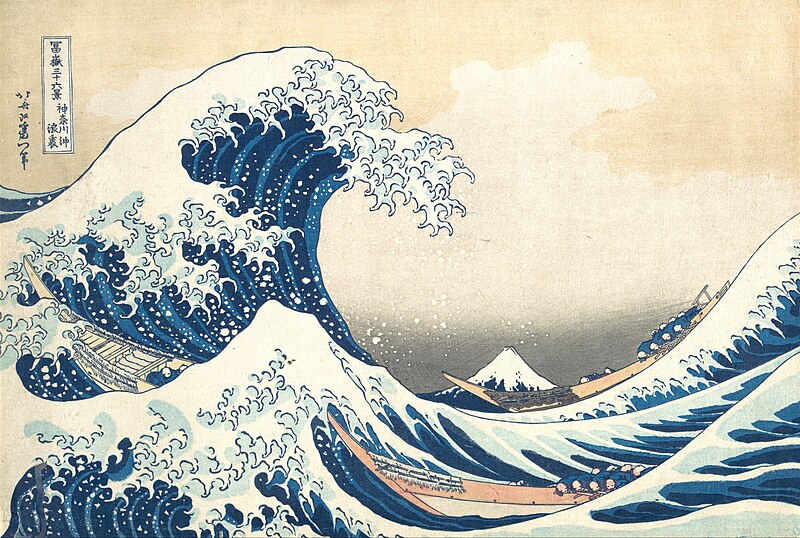|
Edge of the World Seeking relief from spectacle, you drive out old Route 66, lock your car and walk toward Amboy Crater. Stepping off the ranger’s boardwalk, you trudge toward the cone and your body tells you to slow down—sand being slower than sidewalk, and the heat closing around. You welcome regulation from within, born of need, not population density. As you walk, you think other abstract things, like your past, despair and hope. And the slower you go, the more you hear, both small birds and large, the scurry of the unseen, the story in winds that caressed the land to the north and now bring their smells to you. Midday summons, that will change with coming night. By the time you get to the crater, you’ve forgotten why it was so important to climb to the top and see what happens next. Kendall Johnson Kendall Johnson writes and paints in Upland, California. The former psychotherapist has authored books on trauma and crisis management, poetry, and memoir. His work has seen the light of day in Literary Hub, Tears in the Fence, Cultural Weekly and Shark Reef. His book Chaos & Ash released in August by Pelekinesis. www.layeredmeaning.com
0 Comments
The Lobster The life cycle of an American Lobster begins with less than favorable odds as it floats the water’s surface like a transparent mosquito. Only 1 in 1,000 will survive into adulthood, finish college in four years, find a good job, start a family, make their parents proud. I get it. It’s all I ever wanted, too. But like a young lobster molting, my soft outer shell made me easy prey, a thin skin made of fragile dreams and a fear, mostly of failure, but also snakes, drowning, floral patterned dresses. But I have a backbone. Unlike a young lobster hiding in its borrow until it’s better able to swim, I navigated an ocean of naysayers with aquatic-like grace, emerging from my burrows in my own time, shedding encumbrances like an avalanche. Because I’m a survivor—existing on a diet of tenacity, fortitude, and hope. Lobsters are scavengers when necessary, even resorting to sponges when other delicacies are scarce. Crowded by a still life of luscious fruit and vegetables, Arthur Dove’s lobster drifts along the table’s edge, its lifeless claws no longer pinching or crushing, shredding or fighting, having curled and uncurled its abdomen in retreat for the last time —the white table cloth, its final surrender. The chance of seeing a white lobster is one in a million, its uniqueness more deadly than desirable. Pensive, musing, I devour a handful of grapes like a sacrament, thankful for my own camouflage. Diane Durant Diane Durant works with image, text, and found objects to tell true stories, from paddling rivers and road trips to all the everyday stops in between. She is a graduate of Baylor University, Dallas Theological Seminary, and the University of Texas at Dallas where she currently serves as Associate Professor of Instruction and Director of the Comer Collection of Photography. She serves on the university's Committee for the Support of Diversity and Equity as well as the Social Justice Advisory Board for the WNBA's Dallas Wings organization. Diane is the former president of 500X Gallery in Dallas and past editor of The Grassburr, The Rope, Sojourn, and Reunion: The Dallas Review. Her poems have appeared in di-verse-city, riverSedge, Borderlands: Texas Poetry Review, Stymie, the Texas Poetry Calendar, and The Spectacle. Her photographs have been exhibited widely and belong to the permanent collection of the National Park Service. Diane is a member of the Board of Directors for the Cedars Union, a non-profit arts incubator in North Texas, the LGBTQ Caucus Leadership Team of the Society for Photographic Education, and Chair of SPE’s South Central chapter. Her first monograph, Stories, 1986–88, was released by Daylight Books in January. Editor's note: Dear Readers and Writers, It is a personal passion to share art that invites inspiration and imagination, or takes you down an unexpected path. I love to see what each ekphrastic prompt stirs inside of you. It is a joy to read through your entries. The challenges are a very special part of The Ekphrastic Review because we get to look at the artwork through so many diverse voices at once. As always, it is difficult to make a selection from the entries we receive. We value everyone's participation and hope the experience is meaningful for you. It's my personal mission to attempt to strike that fine balance between supporting our most faithful participants and making space for new ekphrastic voices! I also seek to represent unusual or original readings of the art, and of course, poems or stories that are standout works of literature. While we celebrate the wonderful works we publish, sadly, there are always many amazing entries that are left out. As more people join us, it becomes more and more difficult to narrow things down to a handful of responses. We are very grateful that so many people are practicing ekphrastic writing and finding the secret doorway into art! We have compiled a long overdue menu of past challenges and the responses. You can browse that archive by clicking here. It is a work in progress, so please let us know about omissions or errors. Please share this post of poetry and stories in your Facebook groups, on Twitter, in your newsletters, or with your mates. The more eyes that fall on the work of our writers, the better. Thank you for helping to make that happen. love, Lorette ** Stay With Us Your skin is the colour of the sea. You often helped seafarers to survive the storms. Seers of the oceans, powerful and benign. Your gifts are many. Water sprites or naiads, you breathe both water and air. For many generations now the land creatures feared you. Those who wear the white hoods, whose skin is the colour of sky, will drive you back into the sea where they say you belong. They say they won’t rest until your heroic stories are no longer told. Rose Mary Boehm Rose Mary Boehm is a German-born British national living and writing in Lima, Peru. Her poetry has been published widely in mostly US poetry reviews (online and print). She was twice nominated for a Pushcart. Her fourth poetry collection, THE RAIN GIRL, was published by Chaffinch Press in 2020. ** Sea Sprites in Flight We take wing, over the brine, and out and away; over places where even ships do not go (or seldom, seldom), and places known only to hidden creatures and us. When we are on the wing, I and my brothers and sisters, we whisper and croon to the waves, and the foam; we try, in our way, to offer comfort, lay balm on the sore spots – those places coated in tars and oils, patches of land/not land made from the detritus of man. Sore it is, sore on our hearts to see, sore on our spirits to feel, and on our ears to discern the cries others do not hear – the plea for release made by our cousins below, our kin of fin and scale. And we circle on in hope, casting our meagre magic in places, whispering love to our mother, the sea, crying for help from our father, the sky. Imelda Maguire Imelda Maguire, Donegal, Ireland, has had two poetry collections published - Shout If You Want Me To Sing (Summer Palace Press, 2004) and Serendipity (Revival Press, 2015). She is also published in a number of journals and has read widely at festivals and events throughout Ireland. ** Sea Sprites in Flight Wait for the salt air to stagnate, then watch from the prow as they cavort like mayflies rising from nocturnal streams. Sprites flutter and dissipate in sea mist. Their vision inspires near-belief—ephemeral like a persuasive dream. You know better than to alert your mates. Still, you linger for a time wondering how that strange world could belong to your more familiar one, although normally curtained in shadows that guard us from the ruin that might come through clarity—unless we’ve been prepared by some sad exhaustion or loneliness, and honed despair has pierced and opened us. Joseph Chaney Joseph Chaney’s poetry has appeared in The Nation, Crazyhorse, Dogwood, Prairie Schooner, Stoneboat, Spillway, and other print journals. Recent online publications may be accessed at The Apple Valley Review, South Florida Poetry Journal, Valparaiso Poetry Review, The Cresset, and Off the Coast. Chaney is the publisher of Wolfson Press at Indiana University South Bend. ** The Sea Sprites’ Secret We know you humans don’t believe in us – Your disbelief affords our best protection. You rule the earth while overhead we fly Or swim beneath the sea without detection. Yet, though we try to keep ourselves apart, We heed the call when frightened hearts are pounding And frantic voices fade to pleading gasps Of “Help me! Help!…I’m druh…I’m druh…I’m drowning!” Few sailors dare to tell the barmy tale – I warn you now, they’ll blame it on your drinking Should you describe part-fairy dragonflies Who pulled you from the waves as you were sinking. Sweet dreams as you lie resting in the sand And wake respecting creatures unlike Man. Alarie Tennille Alarie Tennille was born and raised in Portsmouth, Virginia, and graduated from the University of Virginia in the first class admitting women. For Alarie, looking at art is the surest way to inspire a poem, so she’s made The Ekphrastic Review home. She was honoured to receive one of the Fantastic Ekphrastic Awards for 2020. Alarie hopes you’ll check out her poetry books on the Ekphrastic Book Shelf and visit her at alariepoet.com. ** Silkie* by the Sea D’ye ken there runs not blood but brine between my bones? “She swims like a fish or mermaid,” they said o’ me. I shook my hair out till it covered every part and took my comb intae my hand and held it close up tae my heart, or combed the seals and kelpies on the long, long strand. They say that silkies come frae far, but I was born right o’er there in yonder land, where my ane mother-- home hersel’ frae far awa’—sang lullabies, sweet and low tae me. My father too was gone awa’-- a fisherman, all out tae sea-- and kenned not how my mother fared. A fisher-lad down on the shore came after me who loved my yellow hair and swore he’d heard me sing The song of silkies frae of yore. “You’ll not,” he said, “be long, yoursel’, upon the land. Come, live wi’ me, and I shall gi’e tae thee thy ane wee babe: a daughter by the strand.” I lived wi’ him. He was my love. I nursed my we’an upon my knee and sang, all low, the lullabies my mother taught tae me. But soon I had to leave-- I had to swim the faem, ye ken. I had to go way out beyond far Sule Skerry-- a silkie by the sea again. One day, as sure as sun shall shine on every stane, I’ll back tae hame once more and fetch my bairn tae me. And she shall have her ane wee lass, another silkie by the sea. And fisher-loons will weep and mourn that ever they had daughters borne or rocked their cradles on the shore. Lizzie Ballagher * In Orkney folklore, a creature called a silkie is half man, half seal, coming to shore only to bring a woman a purse of gold for raising up the child he fathers with her. The consequences are always tragic for the woman. For when the boy comes of age, he too goes to sea to join other silkies; and she is left to mourn alone. In this retelling, however, I imagine that silkies are female, and that it is the men who mourn their lost wives and daughters. Ballagher has travelled widely and lived for years in different countries, an experience that has seasoned her poetry, though she is also glad (now past her three score years and ten) to be writing at home again. This poem celebrates the love of her Scots-Irish heritage in music and story. She blogs at https://lizzieballagherpoetry.wordpress.com/ ** Sea Sprites Lament My family is icy blue cold. There is even a demon within us. It thinks we can’t see or hear it, but I can. It has driven you away. You are fiery hot red with translucent chartreuse wings. I often wondered when you would spread those wings and glide on the waves of time; Instead of being frozen, stuck, on this island of ice; with me. Flying away, you are now free to go as you please, please, please, please remember me. I crave your burn even though it melts me to nothingness. I do not look back as I fly away from you. I force myself to keep my eyes focused forward. I know not my destination, but I do know that your blue, beautiful, smooth iciness will only be destroyed by my spirit of flames which only grow when we come close to being joined as one. So I am opening my wings wide and soaring with waves in this warm crimson dress that you once unrobed from me, your fingers melting melting melting away as my flames flickered with heat for you. Goodbye, my love. Your cold is smooth and strong; Look to the Waves with Wings And Remember My red hot soul That loves But refuses To Destroy You Goodbye, my love Your heat is flaming, fearless, Look ahead to adventures That await you; My steadfast hard Body of ice Awaits your Warm Glowing Return Lisa Molina Lisa Molina holds a BFA from The University of Texas at Austin, and has taught high school English and Theatre. She was named Teacher of the Year by the Lake Travis ISD Education Foundation in 1992. She also served as Associate Publisher of Austin Family magazine. Since 2000, Molina has worked with students with special needs. When not reading and writing, she can be found singing, playing piano, attending art exhibits, or hiking in nature. She finds firmly believes that art and nature are essential to the life of the soul. She lives in Austin, Texas with her family, books, and cat. Her poetry can be read in Trouvaille Review, Beyond Words, Ancient Paths Literary Magazine, Down in the Dirt, Indolent Books, Sad Girls Club Literary Magazine, and Eris & Eros Review with poems soon to be featured in Amethyst Review. ** Touching an Invisible Seam Our home of sea green depths and blue haven skies has been a hidden refuge in the milky white ethers. A transient, hovering existence, I have always felt safe within this whispered mist of shadows and light, where my winged sisters fade and glow with the transparency of clouds. Thoughts and wishes of mortals appear to us like floating orbs of smoke. We pass them back and forth for light sport, always returning their circle hope outlines to earth, sun-streaked and flecked with gold dust mirth. Nothing is ever spirited away in our world, merely borrowed, elevated by joyful intent, embellished with whimsy, adorned with a hint of star-split particles. Today, we sprites take flight, seeking shelter in the low-lying mist, as we transition from one magical upper world to another. Just beyond those mountains, we travel to another emerald-hued seascape. Before human hands can break the spell, touching the paper-thin skin of myth, we flee and soar. We breathe the feathered air of a royal wind. We rise to meet the invisible seam of earth’s vaulted ceiling. Cristina M. R. Norcross Cristina M. R. Norcross is the author of 8 poetry collections and is the founding editor of Blue Heron Review (2013-2021). Her most recent book is Beauty in the Broken Places (Kelsay Books, 2019). She has a new poetry collection coming out with Kelsay Books in Fall 2021. Cristina’s poems have been published in: Visual Verse, Poetry Hall, Right Hand Pointing, Verse-Virtual, The Ekphrastic Review,and Pirene’s Fountain, among others. Her work also appears in numerous print anthologies. She has helped organize community art and poetry projects, has led workshops, and has also hosted many open mic poetry readings. Cristina is the co-founder of Random Acts of Poetry and Art Day. Find out more: www.cristinanorcross.com ** Alongside a Kaleidoscope of Kelpies Last Friday, February at the cusp of crepuscular nimbostratus overhead dark, foreboding growls like great Aslan ferocious, threatening enough to entice Danu Mother of Sea Gods: to rally her wrath of towering spring tide of helical teal waves with spit from white foam over undercurrents of torment to extricate ochrophyles pungent in extremis for stricken sub-mariners: of helmets, no armour losing aquatic battles agin Serpents with venom encroaching their surf yet clandestine around rocks ozone oozing from nostrils as fangs gnash in prospect of a kaleidoscope of Kelpies: in glittering golden tresses translucent wings diaphanous frocks rebellious in their psyche for a dance of the seven veils one after one diluted into spirits of salt water as sprites of deep sea scar: dilated eyes of Kraken senescence in prospect one arm, eight appendages to drown the foolhardy venturing out into the storm dark, foreboding in a cusp at crepuscular of last Friday, February. Alun Robert Alun Robert is a prolific creator of lyrical free verse. He has achieved success in poetry competitions across the British Isles and North America. His work has been published by many literary magazines, anthologies and webzines in the UK, Ireland, Italy, South Africa, Kenya, USA and Canada. Since 2018, he has been part of The Ekphrastic Review community particularly enjoying the fortnightly challenges. He is a member of the Federation of Writers Scotland for whom he was a Featured Writer in 2019. ** Overboard Above the waters gently rise etherial before my eyes -- as if the sea could paint the air with dissipation of despair -- angelic lights amid the foam that beckon me to be at home wirh brine into which all my fear will soon so gently disappear and end torment of tangled kelp, through which I struggle seeking help that seems to, more than merely float, now rise bewinged as if to gloat and taunt the victim well ensnared by sea and storm unwisely dared. Portly Bard Portly Bard: Old man. Ekphrastic fan. Prefers to craft with sole intent of verse becoming complement... ...and by such homage being lent... ideally also compliment. ** dear sea sprites i weave myself into the waves of your fantasy a reverie unspoiled by the dull world i live in i want a pair of diaphanous dragonfly wings the wispy shimmer of their red purple green the ability to take flights when i fancy in an unbounded universe to have friends like these luminous fairies wrapped in stars how one grows wings how to find the secret shores hear the answers whispered on the wind with gossamer greetings a woman locked in a prosaic life Sandi Stromberg Sandi Stromberg is drawn to ekphrastic poetry and its invitation to plunge deeper into a piece of art. Her poems have been honored with two Pushcart nominations and received recognition by The Ekphrastic Review with a 2020 Best of the Net. On Groundhog Day, she was one of the review’s 10 poets honoured with the 2021 Fantastic Ekphrastic Award in honour of her contributions to the genre. Her most recent publications include The Ekphrastic World, San Pedro River Review and The Ocotillo Review. ** Where The Wave of Moonlight Glosses The Dim Gray Sands With Light -- W.B. Yeats (after J.A. Fitzgerald's Sea Sprites in Flight 1860) Sprite: A faint flash, sometimes emitted in the upper atmosphere over a thunderstorm... Oxford Dictionary for Mexico On the night the past backlighted frost crystals melting on the gowns of the women who took pride in being silver everyone knew our wings were imaginary. The clouds, tinted by storm, took the shape of a woman's head her wings disappearing in darkness -- thunder's wild promise ready to crack the shadows so the moon could spill onto the sea resembling egg whites separated into waves before the rains come, whipping waves to froth -- a fantasy in meringue to cover the artist's unconscious meaning as he illustrates what sea sprites dream in an illusory world, land and water where time doesn't exist so everyone is late, you see, and no one knows the beginning or when to leave, the hour of return that divides us: the women in silver with diaphanous wings who decide to play it safe, grouped on dry land the point of both earth and sand, as Yeats said the beach down from the Rosses where he heard the fairies' voices -- Come away. Part human, I looked back at the silvering women -- flashes of light, that night -- when the moon made the sea a candescent mirror for the sea sprites, and art created wings for me before I flew, romantic, into the danger of the storm. Laurie Newendorp Laurie Newendorp lives and writes in Houston, Texas. Nominated for Best of The Net by The Ekphrastic Review and one of ten Fantastic Ekphrastics, her recent book, When Dreams Were Poems, 2020, explores the relationship of art to poetry. The title of the poem, as noted, is a line from a poem by William Butler Yeats; the epigraph is the second of three definitions of sprite.
** Above the Breaking Waves Above the breaking waves the sea sprites soar: bathed in moonlight, they hasten toward the land singing fey songs above the ocean’s roar. Afloat among some swirling clouds, are thousands of tiny sprites in glittering gauzy robes, and one in flight, with flowers in a hatband, glides, dips, and spins -- her alluring face aglow. Into the starless night she disappears, and while waves pound rocks, the clash and din echoes. Crossing surf and sand, the sea sprites veer toward cliffs, where sleepers dream of fairy lore, charmed by otherworldly sounds they hear. One by one, the sea sprites come ashore, but soon they vanish -- gone forevermore. Gregory E. Lucas Gregory E. Lucas writes fiction and poetry. His short stories and poems have appeared in magazines such as Blue Unicorn, Ekphrasis, Blueline, the Horror Zine, and in the Ekphrastic Review. ** Summoning of the Sprites Still night, small waves, clouds disperse into a crescendo of sprites on their stroll from the stars following the scent of the leaves, speaking to them about the turning of the season. Smoothly gliding over the ruffled sea, they do their ritualistic dance while one calls out to the other, leading to a soulful serenade of the celestial singing a divine melody. Following one after another, the seraphic beings excitingly descend from the heavens and disperse to fulfil their art which is as old as the ocean itself. Mary Elizabeth Bruner Mary Elizabeth Bruner is a 2019 graduate of Wofford College (English/philosophy) and is spending a dedicated year writing poetry to explore her passion for language. She currently lives in Greenville, South Carolina with her dog, four cats, and nine chickens while working at a local bookstore as a bookseller and barista. ** Games the Fairy Folk Play Sprites bite the hand that reaches through the veil, twist fingers till they snap, wind hanks of hair about the reeds till the rushing river weaves with weeds, and the blood of the scalp’s tearing will be there, raw in the morning, bald proof, and their laughter’s echo ear-ringing like the shells of the sea. The good folk skim the night with teeth as bright as bone, and their black hounds the huntsmen whip from baying at the moon from snapping at the necks of swans. I never should have played their game, but the moon was too bright to see how their silver faces were black with lies, and they’d sung you away from me. Jane Dougherty Jane Dougherty lives and works in southwest France. Her poems and stories have been published in magazines and journals including Ogham Stone, The Ekphrastic Review, ink sweat and tears, Nightingale & Sparrow and Brilliant Flash Fiction. Her poetry chapbooks, thicker than water and birds and other feathers were published in October and November 2020. ** Un-Spritely Old wings, a bit stiff. I no longer like the sea as in my youth. My sisters know- therefore I am pushed forward, no rest or reprieve; I plunge unwilling into icy waves, echoes of my past flow beneath, detritus of memory darken depths. Wind roughs my skin, abrasive cold shocked weary, wings outstretched; I will go under on this flight, let current take me while sisters fly about, let go the vessel of my soul, sea shall cover me, chill blanket, reclaim youth in memory as wings weigh by measure of deep, saturate, sink. I am un-spritely now, rest is near, wings relaxed, I am but sea mist. Julie A. Dickson Julie A. Dickson writes Ekphrastic and other poetry forms as well as taking regular workshops. She serves as membership chairman for the Poetry Society of NH. Her poems span from nature to current events, from teen issues to captive zoo and circus elephants. Journals such as The Avocet, Poetry Quarterly and The Ekphrastic Review are home to her work, among others. ** Sea Sprits They look so much Like human butterflies Or flying fish Rising from the sea. They look like They can feast On nectar The flowers On shore. Were they born? Or were they Once fantastic Pollywogs? Emory D. Jones Dr. Emory D. Jones is a retired English teacher who published poems in such journals as Voices International, The White Rock Review, Free Xpressions Magazine, The Storyteller, Modern Poetry Quarterly Review, Gravel, Pasques Petals, The Pink Chameleon, and Encore: Journal of the NFSPS. He lives in Iuka, Mississippi, with his wife, Glenda. He has two daughters and four grandchildren. ** Sea Sprite Fairies The Moon rose to fullest bloom above the salty spray. Calling to the Sea Sprites, to join in midnight play. Wings were quickly speckled with iridescent foam. Fairies rode the crest of waves, on that liquid loam. Diving through blue water, to the seabed’s sandy floor, they gathered chalky seashells to bring back to the shore. Sang their sacred songs to fishes who swam into the fray. Waltzed with an octopus, who joined their wet ballet. All night the sprites surfed that starry moonstruck sea, till Dawn brought an end to their evening ocean spree. Moe Phillips Poet/writer/content filmmaker Moe Phillips lives in Lambertville, NJ. Her children’s poetry has been featured in The Caterpillar. She also has six inspirational pieces in multiple issues of Bella Grace Magazine. Four of Moe’s poems have been published in Written Tales. As a writer/producer, Moe has created a series of poetry films for award winning poets as well as penning and producing her own verse for The Wild Bird Fund’s film entitled Heroes. The elements and elementals are her inspiration. ** Chimeric Have I been abandoned, or have I been seized? Who whispers in my ear? The shadows grow talons, teeth, wings, merge with the unchanging twilight. I was told that the ocean was benevolent, protective. Why then do I find myself startled amongst these waves of fear, a changeling among shapeshifters, uncertain of what my senses mean? Held motionless by invisible threads of borrowed energy, I hover between the liminal layers of other realms. I can no longer grasp who or what I might have been. Coral crowns sparkle in a luminous nowhere. Are these transparent creatures merely projections of the frayed edges of my mind, a floating vessel that threatens to plunge me into the restless depths of the unknown? I hear the remnants of voices calling, summoning me to swim back through the veils that thicken with each breath. I try to transform the disintegrating shapes into a familiar landscape, one with sun, earth, trees, home. stilled between crossings untethered to mortal time-- figmented, redreamed Kerfe Roig A resident of New York City, Kerfe Roig enjoys transforming words and images into something new. Follow her explorations on her blogs, https://methodtwomadness.wordpress.com/ (which she does with her friend Nina), and https://kblog.blog/, and see more of her work on her website http://kerferoig.com/ ** Indigo Horizon Walks at the beach with you: Salt air nipping the skin your sweatshirt couldn’t cover; Sea spirits on the horizon, supplanted by the sunset; Topaz sand and bee balm seeds, I could brave the sea with you. But the light always dimmed, The sun always abandoned us, And the Daylilies always retreated. And so we chased the moon. J’espère que tu t’enfuis encore. I hope you still see the shadows Of flowers in the dark. Niko Malouf Niko Malouf: "As a teenager living in Los Angeles, I enjoy writing about the things that surround me, stimulate me, the events of my adolescence as well as the happenings of the world. I hope to share my experiences and perspective with others and inspire them to do the same." ** There are almost six years worth of writing at The Ekphrastic Review. With daily or more posts of poetry, fiction, and prose for most of that history, we have a wealth of talent to show off. We encourage readers to explore our archives by month and year in the sidebar. Click on a random selection and read through our history. Our new Throwback Thursday feature will highlight writing from our past, chosen on purpose or chosen randomly. You’ll get the chance to discover past contributors, work you missed, or responses to older ekphrastic challenges. Would you like to be a guest editor for a Throwback Thursday? Pick up to 10 favourite or random posts from the archives of The Ekphrastic Review. Use the format you see below: title, name of author, a sentence or two about your choice, and the link. Include a bio and if you wish, a note to readers about the Review, your relationship to the journal, ekphrastic writing in general, or any other relevant subject. Put THROWBACK THURSDAYS in the subject line and send to [email protected]. Let's have some fun with this- along with your picks, send a vintage photo of yourself too! Lorette, The Ekphrastic Review ** Villanelle for Louise Bourgeois, by Jenna Le Widely acclaimed poet Jenna Le gave us this beautiful villanelle on Bourgeois. www.ekphrastic.net/ekphrastic-journal/villanelle-for-louise-bourgeois-by-jenna-le ** Cristobal Rojas: Challenge Responses Guest editor Janette Schafer chose this powerful image from Venezuela. Responses by Daisy Bassen, Shelly Blankman, and many more. https://www.ekphrastic.net/ekphrastic-journal/ekphrastic-challenge-responses-cristobal-rojas ** Story About the Old Wall Rug, by Nina Kossman Nina Kossman goes down memory lane, in Russian and in English. https://www.ekphrastic.net/ekphrastic-journal/story-about-the-old-wall-rug-by-nina-kossman ** The Zianigo Frescoes, by Mike Farren Mike Farren takes us on a journey through the stories of Pulcinella, as painted by Giandomenico Tiepolo. https://www.ekphrastic.net/ekphrastic-journal/the-zianigo-frescoes-by-mike-farren ** Giacometti's Cat, by Dan MacIsaac A lean and powerful poem by Dan MacIsaac, perfectly suited to its subject. www.ekphrastic.net/ekphrastic-journal/giacomettis-the-cat-by-dan-macisaac ** L'Atelier Rouge, by Shanta Acharya Poet Shanta Acharya shows us what Matisse showed her. https://www.ekphrastic.net/ekphrastic-journal/latelier-rouge-by-shanta-acharya ** You're the Apple of My Eyes, by Portly Bard Portly Bard is a longtime regular contributor who almost always writes in traditional metre and verse. https://www.ekphrastic.net/ekphrastic-journal/youre-the-apple-of-my-eyes-by-portly-bard ** The Sayulita I See, by Andre Le Mont Wilson The poet takes us on a journey to Mexico via a wonderful piece of folk art. https://www.ekphrastic.net/ekphrastic-journal/the-sayulita-i-see-by-andre-le-mont-wilson ** Disconnected, by Kitty Jospe Kitty Jospe deconstructs Picasso. https://www.ekphrastic.net/ekphrastic-journal/disconnected-by-kitty-jospe ** In Which Hemingway Examines Fitzgerald’s Penis, by Molly Cimikoski An ekphrastic penis story in poetic form. www.ekphrastic.net/ekphrastic-journal/-in-which-hemingway-examines-fitzgeralds-penis-by-molly-cimikoski Join us for our first Flash in a Flash contest! So far we have very few entries. Come on, it will be fun!
$10 entry. $100 prize. One day- the Ides of March- to write and submit an ekphrastic flash. Get details here. Joaquín Torres García’s Café de París Oil on canvas. Slate white, red ochre palette. Write it. Write. Les Années Folles in Montparnasse. The avant-garde. Outline of a rectangular figure here, and another there. Overlaid with black pictographic symbols. We are squat, angular, roughly drawn, says one character. Scratching away brushstrokes, construction of stacked blocks of colour. Write. I put down the word ragtime jazz, the word flapper. Look at the 1920s, the Crazy Years. Left Bank of the Seine. Populate the flat, gridded space with archetypal motifs. Window frames, awning, roof tiles. And the stars. Where terrace cafés. Where tracing in writers and artists. Until the Lost Generation, the expatriates, stand upon this stage. Write. At l'Opéra de Paris, Boléro. Shrill piccolo, the oboe. Sharp staccato of a snare drum. Ilona Martonfi This poem was previously published with Inanna Publications Author Blog and forthcoming in the chapbook Black Rain. Ilona Martonfi is an editor, poet, curator, advocate and activist. Author of four poetry books, the most recent collection is Salt Bride (Inanna, 2019). Forthcoming, The Tempest (Inanna, 2022). Writes in journals, anthologies, and seven chapbooks. Her poem “Dachau on a Rainy Day” was nominated for the 2018 Pushcart Prize. Artistic director of Visual Arts Centre Reading Series and Argo Bookshop Reading Series. QWF 2010 Community Award. Editor's note: This artwork was used in an ekphrastic challenge. Read another poem by Ilona and many more inspired by the painting, here. The Erotic Drawings of Egon Schiele They are drawn from life into the damp air of the studio-- reluctant, smug. Waves of green and blue stockings wash the floor. He watches them part their labia with strudel-thick fingers over the crayons and heavy paper to which he affixes the Chinese stamp of his signature —or, if unfinished, does not. They are released into the crowd of children who play in the street. E.C. Messer E.C. Messer lives with her husband and cats by the Pacific Ocean in California. Follow her on Instagram and Twitter @ecmesser. She would like very much to know you. Imperfect Sheep in a Meadow The moment of discovery elicits in me a mixture of affection, nostalgia for a farm I never knew, traveling through Wales, and instant appreciation of a piece of discarded art that might be considered a “second” if art were sold in outlet malls. The idyllic, whimsical scene depicts four cloud-shaped sheep grazing in a meadow. The sheep are not the cotton-white of your imagination, but streaked with a gray hint of sadness. They appear contented though, with a fullness in the belly, yet they are neither adorable nor stoic; their black button-eyes follow you, absent of light. It’s nearly spring and their thick wool coats need shearing, but they don’t look like the receptive type. I remember petting a sheep for the first time at five through a petting zoo fence, startled by how not-soft it was. After years of picture-book conditioning that promised sheep were fluffy pillows, I was disappointed. But I knew it wasn’t the sheep’s fault—that it would have been soft for me, if it had any say in the matter. A trick of the spinning wheel, it seemed to say. The central sheep in the foreground simply stares at the viewer while the other three mill around in the background. I imagine their conversation roams from the mundane topic of clover to more philosophical concerns: Should we resist being herded? The oil painting is on a stretched canvas, unframed, and raw. It’s the size of a mirror over a bathroom sink, and I imagine a sheep looking into it, thinking, Funny how when I chew the grass, that sheep chews the grass, but ultimately reasoning that every sheep is chewing the grass and that it must really get back to chewing the grass. The piece has earned a prominent place in my bedroom: not over the bed but on the opposite wall where I can see it more readily and can meditate on the stillness of the meadow. The farm in my mind’s eye has always been a combination of the Waltons’, bed and breakfasts in the Welsh countryside, and the farm of a friend who had horses and barn cats. I was at home on a dairy farm, in my imagination anyway—no milkings at dawn or haying in mid-summer; just the romanticized version of fresh eggs plucked from the coop and the rambling, white farmhouse, curtains billowing in the breeze. To the eye, the work consists of no more than six colours: white, yellow, green, blue, purple, and black. The tones are earthy and muted, the sheep almost blending into the clouds, the grass swallowing their black feet. The sky is not the picturesque blue shade of a tranquil day, but it’s not menacing either; the possibility of a small purple storm lingers in the distance. Focused on the field, I’m nostalgic for a solo trip to Wales a dozen years ago, exploring all the out-of-the-way villages I’d seen in books. Travel is best done alone, I think, and this trip was a gift to myself after finishing graduate school. It was on a drive through North Wales that I crested a hillside and came upon a flock of sheep grazing the patchwork quilted countryside. I stopped the car and got out, feeling an instant kinship to these animals and their way of life: wandering, resting, and snacking. I watched them in silence as they watched me. We are all so curious about each other, I thought—sheep too. Here was a flock roaming freer than in the petting zoo but still contained by the farm’s boundaries. Even the sheep of my painting were confined by the edge of the canvas. Were there no sheep left that were truly free? The child in me that day still wanted to pet one, but the adult in me was wary of getting nipped. The signature element, however, is, to anyone else, the painting’s flaw. From the body of the innocent sheep on the left, the one absent-mindedly munching on sweetgrass, drips a white streak of paint that trickles, unintentionally, through the green meadow. You imagine an art appraiser readying his magnifying glass, only to lower it slowly, wondering what kind of joke you’re playing. At least one friend has suggested that with a little green paint, I could fix that right up. For five dollars at a yard sale in Belmont, MA, it was a steal—the work of an amateur with some skill who didn’t bother to clean up the drip. “My dad painted that,” a boy told me, taking my crumpled dollars. A guy who thought, Eh, somebody’ll buy it. I couldn’t not buy it. This, to me, was Art. Not the perfect bucolic scene of serene sheep with a herder in the distance holding a staff, but a painting unlike any other that needed no signature or authentication. Its uniqueness spoke to my quirky desire for the unloved, the thing left behind. It has a lot to do with why I go to yard sales—on missions of rescuing unmatched candlesticks and books in need of a reader. Pottery Barn houses mystify me. I don’t want to own the coffee table—and certainly not the art—of my neighbour. My neighbour, however, is equally mystified by my love of a sheep painting gone awry. I remember spilling paint once as a seven-year-old in an after-school art class taught by former hippies in their home in Cambridge, MA. I tipped something over by accident—a jar of paint or the colour-tinged cup of water holding our brushes—and the colours spread all over the painting of the girl next to me while she was at the sink washing her hands. As cool as it looked—her painting was enhanced by the spill, I thought—I knew she wouldn’t think so, and I slipped out before the outcry. I lived right around the corner from that house for years, and it’s funny how shame follows you, like the beady eyes of a sheep. Maybe staring at the painting is penance for ruining that girl’s picture. Or it’s a pining for a way of life that resonates with me, however unrealistic: the sheep, the chickens, the farm-fresh milk, and rhubarb pies on the windowsill. More likely though, it’s a selfish love of a piece of art that I, alone, love, dribble and all. I feel a kinship to the collector in whose house hangs Leaving the Paddock, by Edgar Degas, stolen from the Isabella Stewart Gardner Museum, both of us gazing upon our paintings in the same protective way. We share a bond, and perhaps a pang of guilt, that our masterpieces may never be appreciated by another. Jaqi Holland Jaqi Holland is a writer and copyeditor living in Salem, MA, with an affinity for imperfect art and children’s art, particularly paintings discovered at yard sales. She has an M.A. in Writing and Publishing from Emerson College where she works in academic support. The Vision of Chancellor Rolin Chancellor Rolin is on his knees before his prie-dieu. He sees a vision of the Virgin and Child before him. His gimlet eye assesses them, as if about to negotiate a deal; reach some accord; strike a bargain with heaven. Rolin knows many secrets, who can be bought and how. That brocade gown cannot disguise his calculating heart. Beyond the window the river purls toward the horizon. This land profits him more than the peasants who work it. As Chief Adviser to the Duke of Burgundy he knows all the ways to manipulate with bribes and threats in the court and market. His portrait is by the top court artist; nothing but the best can purchase piety. Colin Pink Colin Pink’s poems have appeared in a wide range of literary magazines and often in the The Ekphrastic Review. He has published two poetry collections: Acrobats of Sound, 2016 from Poetry Salzburg Press and The Ventriloquist Dummy’s Lament, 2019 from Against the Grain Press and he has another pamphlet (Wreck of the Jeanne Gougy) and a full-length collection (Typicity) forthcoming in 2021. Book of Kells: St Matthew The man is eyeless, or his eyes are fixed on something we can’t hope to see. Beneath his naked feet, geometry – a field of abstract pattern where we might perceive the heads and feet of beasts and fowls. Beside the man – a calf, an eagle, though to each abstraction comes, as if the absolute burned through their flesh and bone. There is a sort of door or hallway arching past the man’s gold locks, his halo, vault on vault in much the way one meets in church doors. In his left long-fingered hand, a closed book. Who is this that comes in glory? What is in the book he has not opened yet? What does he see that we do not? In red and gold and blue and lilac he has come to us on this bare vellum rectangle. The swirl and line of vision wraps around him. As we gaze we are made holy. There is no escape. John Claiborne Isbell Since 2016, various MSS of John Claiborne Isbell’s have placed as finalist or semifinalist for The Washington Prize (three times), The Brittingham & Felix Pollak Prizes (twice), the Elixir Press 19th Annual Poetry Award, The Gival Press Poetry Award, the 2020 Able Muse Book Award (twice) and the 2020 Richard Snyder Publication Prize. He published his first book of poetry, Allegro, in 2018, and has published in Poetry Durham, threecandles.org, the Jewish Post & Opinion, and The Ekphrastic Review. As a young man in the 1990s, he published books with Oxford and with Cambridge University Press and appeared in Who’s Who in the World. The Great Wave and Katsushika The fishermen bowed their heads waiting for the blow. They had known the wave was out there, circling the seas in a never-ending rush of rage, fury and power. Tales had been told by those who had seen others crushed beneath the rampaging wall of foaming water, but never by any who had actually been consumed by the curving carving crescent of seething white and blistering blue, for none had survived a face-to-face encounter. But the fisherman had taken the risk, for rough seas throw up the fish, bringing the large lurking treasures from the sea floor up to the surface. And none of them had ever actually seen the Great Wave and knew better than to fully fear a myth. But now they could see it, and it was greater than they could ever have imagined. Even Fuji, the mighty mountain, the untameable tower, cowered at the sight of the on-rushing Great Wave. The fishermen bowed their heads waiting for the blow, for it was too late now to attempt to flee. They were waiting for the smash that would shatter down on them from on high, their bamboo boats which had seemed sturdy on the shore to be splintered into kindling by the ferocity of the Great Wave. They had been in choppy waters before, laughed as the wind whipped the waves into a frenzy, sending showers of salty brine over their weather-beaten faces. They had won those battles, but this wall of water was the full war bearing down on them now. Only Katsushika raised his head as the Great Wave roared its approach. No, he cried in his mind, I will not bow out like this. He gritted his teeth against the whirling blizzards sweeping and sucked by the Great Wave. He heaved on the tiller and turned his boat so he faced the wave head on. And he felt the Great Wave see him and he felt the Great Wave laugh. Finally, someone was posing a challenge. The Great Wave rushed towards Katsushika, and Katsushika was pulled towards the Great Wave by the water being sucked up to fuel its mighty face. He gripped the tiller, holding it firm, strong and straight, his eyes narrowed against the spray spattering his face, and the boat started to rise, soaring vertically up the sheer front of the Great Wave. Be strong, his mind screamed, keep true, and with every grain of strength and courage he kept his boat straight as it rose higher and higher towards the over-bearing peak. And just as he felt his craft starting to be pushed upside down by the Great Wave, he felt the water give, and he burst through the crest and sailed down its back. He had looked The Great Wave in the face and he had won. And behind the wave was calm, and a large squid sprawled dazed on the surface ready to be finished off and fished out by Katsushika's harpoon. Duncan Leatherdale Duncan Leatherdale is an award-winning journalist and author based in the UK. |
The Ekphrastic Review
COOKIES/PRIVACY
This site uses cookies to deliver your best navigation experience this time and next. Continuing here means you consent to cookies. Thank you. Join us on Facebook:
July 2024
|
